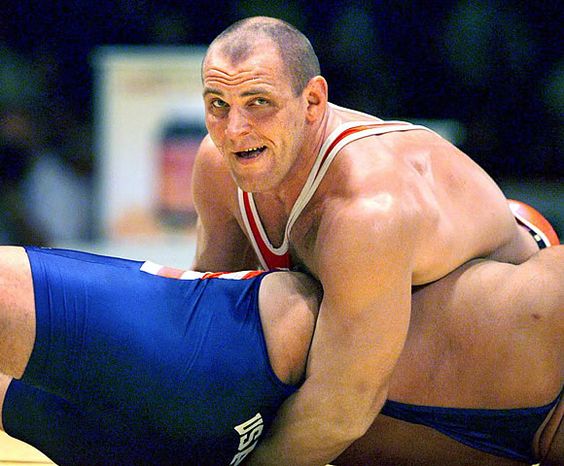Even though competing for your country at the Olympics is one of the highest accolades in sports betting for a living, some Olympians have represented more than one country. Continue reading to learn about the Olympians who competed for countries other than their own, why they did so, and how well they did.
Winning an Olympic medal is the pinnacle of achievement for athletes all over the world. You’re on the platform, your flag is being raised, and your national anthem is being played. However, for many athletes, the flag and anthem displayed are not those of their native nation. Indeed, there are several examples of players competing for countries other than their own in the world of sports.
Why Do Olympians Compete with Each Other?
There are hundreds of reasons why Olympians compete for other countries, and I’m not kidding. Although the International Olympic Committee insists that an athlete must be a national of the country they represent, having several nationalities is a common occurrence for many people around the world.
Through their immediate family, lineage, history (including colonialism), and international events, people all around the world have numerous nationalities (such as the dissolution of a country or fleeing conflict).
Top-Level Athletes in Sports Betting for A Living
When top-level athletes choose to transfer allegiances and play for a different national team, they frequently create headlines.
Kaillie Humphries, a two-time Olympic gold medallist in bobsledding for Canada, has become a citizen of the United States in preparation for the 2022 Winter Olympics. She left Team Canada in 2019 after alleging that she had been harassed and abused by the Canadian Bobsled Federation.
Perhaps you recall the saga surrounding former WNBA player Becky Hammon, who, although being born in South Dakota, naturalized as a Russian citizen while playing for CSKA Moscow and won bronze with the Russian team at the 2008 Beijing Olympics.
Let’s take a look at several Olympians who competed for other countries throughout the Olympics’ history:
Jazmine Fenlator-Victorian – USA / Jamaica

Fenlator-Victorian, a multiple World Cup medalist in bobsleigh, made her Olympic debut at the 2014 Winter Olympics in Sochi. She was rated third in the world in 2015 before making the surprise decision to change her nationality to Jamaica! Fenlator-Victorian was allowed to represent Jamaica at the 2018 Winter Olympics in Pyeongchang thanks to her Jamaican-born father.
Despite the fact that Jamaica has yet to win a medal at the Winter Olympics, bobsledding has a long history in Jamaica, having debuted in the 1988 Olympics in Calgary and being immortalized in the cult film Cool Runnings.
As she mentioned in her pre-Olympic press conference in 2018, Fenlator-motives Victorian’s for switching to Jamaica where to encourage diversity in bobsledding and to be a role model for sports betting for a living.
Saeid Mollaei – Iran / Mongolia
One of the most inspiring stories from the 2020 Tokyo Olympics was that of Judoka Saied Mollaei. He represented Mongolia in the finals of the Men’s 81kg Judo competition after fleeing Iran for his and his family’s safety. Even though he only won silver, this was undoubtedly one of the most renowned medals of the entire game.
Mollaei clashed with the Iranian Judo Federation at the 2019 Judo World Championships after competing for his natal country of Iran at the 2016 Rio Olympics.
Mollaei was ordered by the Iranian officials to lose his semi-final battle on purpose to avoid the favorite, Israeli judoka Sagi Muki. Iranian athletes often refuse to participate against Israeli athletes because Iran refuses to recognize Israel’s right to exist.
Mollaei refused to throw his match and, while losing the fight, escaped to Germany with his family to avoid retaliation. Despite his difficulties, Mollaei has continued to compete, first for the refugee team and then for Mongolian citizenship (which was offered by the Mongolian President who is also the chair of the Mongolian Judo Federation).
We now have a narrative of friendship and sportsmanship emerging from the nasty views that nearly cost Mollaei his sporting career. Mollaei became close friends with Sagi Muki and trained with the Israeli judo team before winning silver at the Tokyo Olympics.
Jos Lansink – Netherlands / Belgium
Due to regulations within various sports, some sportsmen change their nationality. Jos Lansink, a Dutch show jumper, was a major component of the Dutch equestrian team in the 1992 Summer Olympics in Barcelona, where they won gold in the team event. However, due to a rule change, Lansink was compelled to alter his nationality from Dutch to Belgian.
Following the Sydney Olympics in 2000, riders and their horses were obliged to be of the same nationality. Lansink’s horse, Melchior, was Belgian, therefore he decided to take the nationality of his horse and compete for the Netherlands’ southern neighbors. He competed in three Olympic Games for Belgium, but his greatest achievement was winning the World Championship in 2006.
Elena Khrustaleva – Russia / Belarus / Kazakhstan
Although dual nationality is very common, triple nationality is truly extraordinary! Elena Khrustaleva, a Kazakh biathlete who has raced for Russia, Belarus, and Kazakhstan, is an example of this. Between 2000 and 2006, Khrustaleva alternately represented Russia and Belarus.
She was born in Krasnoyarsk, Russia (then the Soviet Union). She represented Russia in the European Biathlon Championships and Belarus at the 2002 Winter Olympics in Salt Lake City.
She became a citizen of Kazakhstan in 2006 and chose to represent the Central Asian country in the future. One of her motivations for competing under the Kazakh flag was her affection for the country after years of training there.
Khrustaleva’s biggest achievement came in the 2010 Winter Olympics in Vancouver, where she took silver in the women’s individual biathlon, Kazakhstan’s only medal.
Majlinda Kelmendi – Albania / Kosovo
It is regretfully impossible for certain athletes to represent their home country. The lack of recognition of Kosovo athletes often stopped them from participating in their country. Kosovo has battled for international recognition since declaring independence from Serbia in 2008, and only roughly half of the UN’s membership recognizes Kosovo as an independent state.
Because the International Olympic Committee (IOC) did not approve Kosovo’s Olympic Committee until 2014, this severely limited Kosovar athletes’ eligibility to compete for Kosovo, Kosovar athletes had to compete worldwide using their second nationalities. Majlinda Kelmendi, an Albanian judoka, competed in the London Olympics in 2012.
Because Kosovo was accepted by the IOC in 2014, she was able to compete in Rio under her selected nationality in 2016. When Kelmendi won gold in the women’s 52kg judo event, she became Kosovo’s medalist and flag carrier.
Bert Veldkamp – Netherlands / Belgium
Bert Veldkamp, a Dutch speed skater, changed his nationality due to the qualification method for the Dutch national team, which was similar to Jos Lansink.
Even though Veldkamp had won an Olympic gold medal in the 10,000m at the 1992 Winter Olympics in Albertville, he had to go through the lengthy qualification process that exists in the Netherlands, where speed skating is one of the most popular sports.
He obtained his Belgian passport in 1997 and began representing Belgium internationally soon after. At the 1998 Nagano Olympics, he won a bronze medal and many medals at the World Speed Skating Championships.
Veldkamp isn’t the first Dutch speed skater who has relocated to the south for a more straightforward qualification process. “Schaatsbelg,” which means “skate Belgian,” is a Dutch name for this phenomenon.
Wu Chuanyu – Republic of China / People’s Republic of China
Wu Chuanyu was a pioneering Chinese athlete whose name will go down in history as the first Olympian to represent the People’s Republic of China at the Olympics.
Wu, who was born to a Chinese family in the Dutch East Indies (when Indonesia was colonized by the Netherlands), made an early impression as a swimmer, winning numerous championships in colonial Indonesia.
He was the solitary swimmer for the Republic of China team at the 1948 Summer Olympics in London, when he represented his ancestral motherland.
Wu continued to represent China abroad after the People’s Republic of China was established in 1949. At the 1952 Summer Olympics in Helsinki, he became the first Olympian to represent the People’s Republic of China as their sole athlete.
In addition, his Olympic career was tragically cut short when he died in an airplane disaster in 1954.
Jaroslav Drobný – Czechoslovakia / Egypt
Drobn played in the Czechoslovak hockey league from 1938 to 1949 and represented Czechoslovakia at the 1948 Winter Olympics in St. Moritz. The Czechoslovak squad took silver, with Canada taking gold on goal difference.
Czechoslovakia was seized by Soviet-backed Communists just over two weeks after he earned his Olympic medal. Drobn escaped to Switzerland in July 1949 and was welcomed into Egypt, where he was granted citizenship after a brief period of statelessness.
Drobn took the tennis world by storm now that he was no longer bound by Communist restrictions. In 1951 and 1952, he won back-to-back French Open tennis titles before winning Wimbledon in 1954. Drobn is the only Egyptian to have won a grand slam tennis championship.
Drobn was almost the first European player to play in the NHL, which is a great (almost) fact! In 1949, he was offered a contract by the Boston Bruins, but he declined to pursue his tennis career.
István Gergely – Slovakia / Hungary
Because of the complexity of European history, national minorities have frequently formed considerable populations within other countries. Ethnic Hungarians, who make up the majority in numerous cities and districts bordering Hungary in Slovakia, Serbia, and Romania, are likely the most affected.
This is primarily due to the redrawing of Hungary’s borders following World War II when the Treaty of Trianon reduced Hungary’s size to less than 30% of its pre-war size and population to less than half of what it was before the war.
István Gergely, a water polo goalie, was born in the town of Dunajská Streda in Southwestern Slovakia. Before the Holocaust, the town was predominantly Hungarian-speaking, with ethnic Hungarians and Jews split pretty evenly. That’s why people look at him for sports betting for a living.
According to The Census
According to the 2011 census, 74.53 percent of the town’s population was Hungarian, the highest proportion in Slovakia. Gergely was a member of the Slovakian national water polo team until 2002, making an appearance in the 2000 Sydney Olympics.
Gergely was able to obtain his Hungarian passport in 2003 because of Hungary’s nationality law, which aims to give ethnic Hungarians living abroad a path to citizenship. After that, he was a member of the Hungarian national squad, which won gold medals in both Athens and Beijing.
Aleksandr Karelin – USSR / Unified Team / Russia

Aleksandr Karelin, one of the best Olympic wrestlers of all time, holds the distinction of representing three different countries at three successive Olympics. He made his Olympic debut for the Soviet Union in Seoul in 1988, winning gold in the 130kg Greco-Roman event.
Before the 1992 Winter Olympics in Albertville and the Summer Olympics in Barcelona, the IOC had not reached agreements with most of the newly independent republics following the fall of the Soviet Union in 1991.
The Unified Team was formed as a result of this, and despite no longer representing the USSR, it was still one of the strongest and best Olympic teams in the world.
In Barcelona, Karelin hoisted the Unified Team banner (complete with Olympic rings) before winning his second gold medal in a row. In 1996, he achieved his hat trick of gold medals in Atlanta, where he represented Russia.
Karelin retired from Olympic wrestling in 2000 after failing to win his fourth consecutive gold medal (settling for silver), but he remains a renowned figure in the sport.
Can You Represent Any Country in The Olympics?
No, the International Olympic Committee (IOC) requires Olympians to be citizens of the country they represent.
Although certain teams, such as the Great Britain and Ireland teams, are technically representing geographic areas rather than states, they are dominated by British and Irish residents in actuality.
Athletes can compete as independent athletes under the Olympic flag in certain circumstances.
This happened during the boycott of the 1980 Moscow Olympics by the United States, and it happens frequently when an Olympian’s home country’s national Olympic organization is not yet completely recognized (this was the case for Macedonian athletes in 1992 following the breakup of Yugoslavia).
Since 2016, the IOC has also established a Refugee Olympic Team for athletes who are refugees residing in other countries. As part of the Refugee Olympic Team, 29 competitors competed in Tokyo under the Olympic flag.
How Do Countries Choose Their Players for The Olympics?
The procedure for selecting athletes for Olympic national teams differs by country and sport. The US Olympic Trails are used to select athletes for the Olympic track and field squad in the United States. The global rankings are used to decide the selections per weight category in sports like judo.
How Do Athletes In Other Sports Pick Which Country To Represent?
Athletes with dual nationalities frequently have to choose which country to represent, especially since switching teams is difficult.
Some athletes choose their country based on their feelings towards it: Max Verstappen, a Belgian-born Formula One world champion, chose the Netherlands because he felt more Dutch than Belgian.
Some sportsmen are more logical in their choices: Diego Costa, a Brazilian-born soccer player, switched to the Spanish national team in 2013 to increase his playing time.
And… Are you ready for sports betting for a living? Don’t forget to visit the most reputable sites like superitc that will help you to play safely. / Dy
Read More: 5 Lions Slot Pragmatic Play: RTP 95.51% with High Volatility



